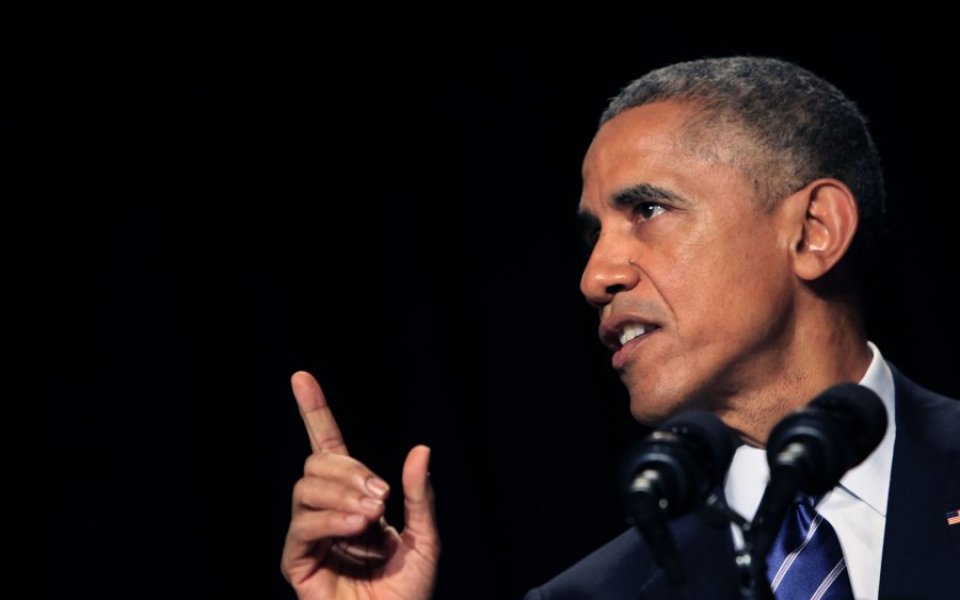As the world descends into global chaos, the United States is on the border of disorder

As the world’s foreign and defence policy elite descend on the Bavarian capital for this weekend’s 52nd annual Munich Security Conference participants and observers are likely to ask: Where are the Americans? True, the congressional delegation is strong, with a dozen or so senators and representatives making the trip. But apart from secretary of state John Kerry, the Obama Administration will be curiously absent from the main stage.
No doubt, there are good reasons why defence secretary Ashton Carter, national security advisor Susan Rice, CIA Director John Brennan or indeed Vice President Biden, who has almost become a regular in Munich, decided to stay at home. But as understandable as the individual decisions might be, taken together they risk reinforcing the widely held view of a United States in retreat from its traditional role of global leader.
Whether in the Far East, the Ukraine, Syria or North Africa, friends and adversaries alike have observed an America that seems hesitant and unsure of itself. The result has been anything but positive. If only the Americans had shown greater resolve, so the argument goes, many of the crises we are dealing with today could have been nipped in the bud.
Because of Washington’s inaction, European borders have been forcibly redrawn for the first time since the Second World War. Because of Washington’s inaction, over 150,000 Syrians have lost their lives and more than nine million have been forced to flee their homes as a civil sectarian war rages on. Because of Washington’s inaction, the so-called Islamic State is now on the march in Libya. The Harvard historian Niall Ferguson captures the feelings of many when he writes: “When President Obama might have intervened effectively, he hesitated. When he did intervene, it was ineffectual.”
Read more: The US’s attempt to halt China’s rise is a monumental blunder
There is some validity to such claims but the argument that an interventionist foreign policy would have produced significantly better results in the Crimea, Syria or Libya is certainly exaggerated. It is just as likely that greater intervention would have produced results even worse than inaction. Moreover, it is hard to see how a more interventionist strategy would have slowed the rise of China or significantly altered the overall course of Vladimir Putin’s foreign policy. After all, international politics is always a competition for power and influence. Even the closest of allies jockey for relative advantage, if only to maximise their influence in the design of common strategies.
The argument that President Obama is an indecisive leader is also overstated. Whether with health care reform, the clandestine deployment of special-forces to Pakistan in pursuit of Osama bin Laden, or the pursuit of a negotiated agreement to contain Iran’s nuclear program, the President has demonstrated a willingness to make hard choices that carried significant domestic political risks.
So why hasn’t the Obama Administration been able to articulate a coherent grand strategy and cultivate the image of international leadership?
The design of a coherent strategy presupposes that one understands the nature of the game being played. But when we look at the world today, it seems that nobody is quite sure. In China, Russia and Turkey, autocrats appeal to nationalism, sometimes backed by religion, in an effort to mobilise domestic political support for foreign policies that harken back to the 19th Century, when great powers competed for spheres of influence. In Brussels, the European Union clings to the vision of power politics tamed by international law and the institutions of the 20th Century. Meanwhile violent Islamist groups deny the legitimacy of the international system itself, challenging the very notion of territorial sovereignty.
Read more: Britain eyes the east as the economic way forward
Historically it has fallen to the great powers to define and enforce the rules of the international system. Call it a paradox, but in order to effectively compete with one other, the major powers need to cooperate in maintaining the fundamental rules of the game. If they can’t or won’t, competition turns to chaos. And if we are not already there, the world is perilously close.
The desire to know how and why we got here is understandable. Long-term social and technological changes are at play and have been accelerated by reckless foreign policy choices, with plenty of blame to go around. The more urgent task, however, is to understand the different games that are being played simultaneously and to find a way to get the major players back onto the same field. It should be the focus of any state aspiring to the mantle of leadership.
And although it often appears reluctant, the United States remains the best candidate. With all its faults it remains the only state with the requisite mix of diplomatic capacity and military power tied to a vibrant economy and dynamic society.
A super power with global interests and a liberal democracy committed to universal values, the United States is uniquely suited to the task of bridging 19th and 20th Century conceptions of international politics in pursuit of a consensus appropriate for the 21st. Part of that consensus will be a reaffirmation of the sovereign nation state as the dominant player in international affairs, a principle around which the United States, Russia, Turkey, Saudi Arabia, Iran and EU member states are coalescing in the confrontation with ISIS.
But reversing the slide toward global chaos will require agreement on a broader range of basic principles and Munich is as good a place as any to begin to define them. But first we need to answer the question: Where are the Americans?